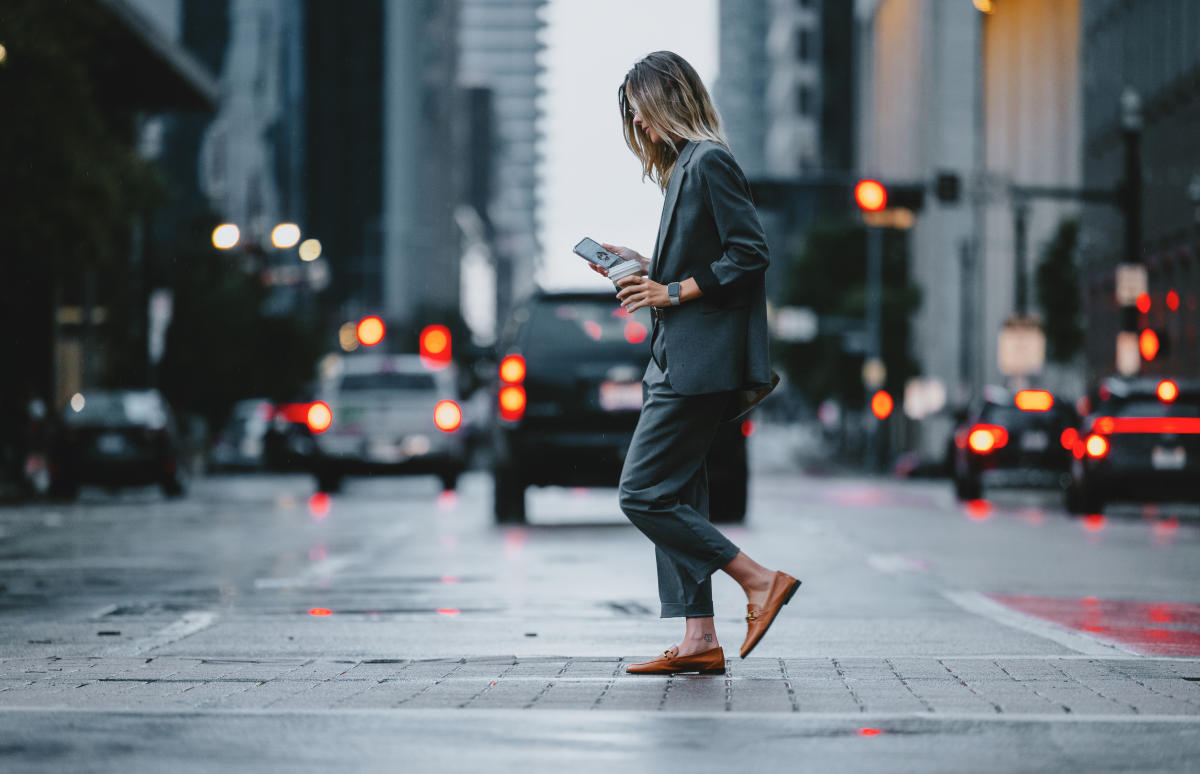Britons must make “immediate” security improvements to their smartphones as phone theft has risen exponentially over the past year, experts warn.
New police figures show that snatch thefts have soared by more than 150% in the last year, with an estimated 78,000 people having had their phones or bags grabbed from them on the streets.
According to Crime Survey data from the last 12 months, more than 200 snatch thefts occur everyday on the streets of England and Wales, with more than a third (36%) involving theft of a mobile phone.
The UK government has pledged to crack down on the criminal activity and is calling on tech companies and phone manufacturers to help come up with a solution that could help deter them.
Policing Minister Dame Diana Johnson said: “Phone companies must ensure that any stolen phones can be quickly, easily and permanently disabled, rather than re-registered for sale on the second-hand market, and we will be meeting them soon to discuss what further action is required to make that happen.
“If we work together, government, tech companies and law enforcement can break the business model of the phone thieves and moped gangs who rely on this trade.”
But until these new security innovations come into place, people must stay vigilant and keep their devices as secure as possible. However, new data from phone recycling comparison website Compare and Recycle shows that Britons are not safeguarding their mobile phones enough.
The survey of 2,000 mobile phone users revealed that around half of Britons don’t secure their phone with a PIN code. When it comes to biometrics security, only 28% use touch ID to secure their device, and even fewer (20%) use face ID.
Worryingly, 14% of users have all their login details saved on their mobile devices, making it too easy for thieves to gain access to all their victim’s social media profiles and accounts if they get their hands on it.
The data also revealed that a very small proportion (6%) of users use privacy screen protectors, which means thieves and hackers may be able to see the contents of your phone just by looking over your shoulder.
Experts at Compare and Recycle have issued an urgent warning to all Britons to increase their security measures on their devices.
“With mobile phone theft on the rise, it is more important than ever that we are protecting our mobile phones with passcodes, in addition to utilising the more advanced technologies modern smartphones offer,” the experts said.
“Having biometric authentication, such as fingerprint or face identification, which uses facial recognition technology, is crucial for maximised security and makes it significantly harder for unauthorised users to gain access compared to just a passcode or pattern lock.
“Our research highlighted Brits’ concerns about their data being stolen, with financial information, such as banking apps, ranking as their top worry at 60%. Without proper protection on devices, personal data—such as emails, online banking information, and images—remains vulnerable if the device falls into the hands of a thief. If a thief gains access to your device, the situation could quickly escalate from a lost phone to a full-scale breach of your personal and financial security.
“If your device isn’t currently secured with a fingerprint scanner, face ID, or any of the security options available, we strongly urge you to address this immediately by setting up these methods of authentication in your phone’s security settings.”
Security measures to protect your device today
Use a privacy screen protector: Privacy screen protectors stop other people – including those with bad intentions – from looking at your phone screen while you are commuting, in a cafe or restaurant, or just out and about.
Don’t save all your logins on your phone: While it is easy to save all your login information on your phone, it also means that if someone steals your phone, they’ll be able to access your social media and other accounts.
Use two-factor authentication: Adding an extra layer of protection with two-factor authentication to your device can help you lower the risk of hackers accessing your accounts.
Don’t use the same password for multiple websites and apps: Many people use the same password for all their accounts for ease, but this can put you at real risk. If a hacker or thief manages to get ahold of one password, they will then be able to access all your accounts.
Don’t connect to unknown or public Wi-Fi networks: Using Wi-Fi provided by private businesses, like restaurants and shops, is generally safe. However, you should avoid connecting to unknown networks when you’re out and about. Use your own mobile network data wherever possible.
Write down your IMEI number to block a stolen device: Write down and store your phone’s IMEI number in your home. If your phone has been stolen or lost, you can report the number and block it, so that the device cannot operate in the country in which it was registered. You can retrieve your IMEI number via your phone’s settings by by dialling *#06#.
Read more about cybersecurity:
